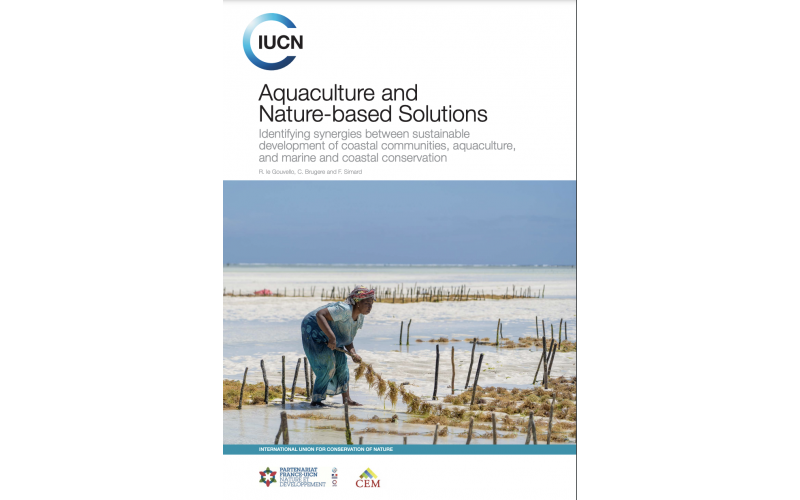The present report examines the emerging concept of Nature-based Solutions (NbS) and the IUCN Global Standard when applied to social-ecological systems that include aquaculture production. Aquaculture production has very significantly increased in tonnage and value over the last decades. It is seen as a potential solution to replace the declining wild fishery stocks, therefore addressing SDG 2, food safety, and many other SDGs. However, this impressive growth in worldwide aquaculture production has also been associated with critical environmental and social drawbacks, highlighting the need for new approaches reconciling aquaculture with conservation and societal benefits.
The first section of the report reviews the critical contextual situation, highlighting major issues related to climate change, biodiversity losses and endangered marine ecosystems. It stresses the need for new approaches, such as the concept of NbS, to improve human ability to implement Sustainable Development and to reach the UN Sustainable Development Goals.
Section 2 briefly reviews the eight criteria in the Global Standard, which presents a strong anthropogenic connotation, and highlights that the central scientific concept of NbS is embedded in ecosystem-based approaches and management. Instruments for the evaluation of ecosystem services, and the degree of ecological engineering, are essential parts in the NbS design and assessment.
Following this, the eight criteria for the Global Standard for NbS are discussed and the NbS framework is examined. This publication is a first attempt to examine aquaculture systems within the recent framework of the IUCN Global Standard. It is concluded in Section 6 that the concept of NbS may provide new opportunities to implement existing concepts for aquaculture, such as EAA, and contribute to clarifying some critical issues in aquaculture. This finding advocates for further exploration of aquaculture-related potential NbS based on specific case studies.

